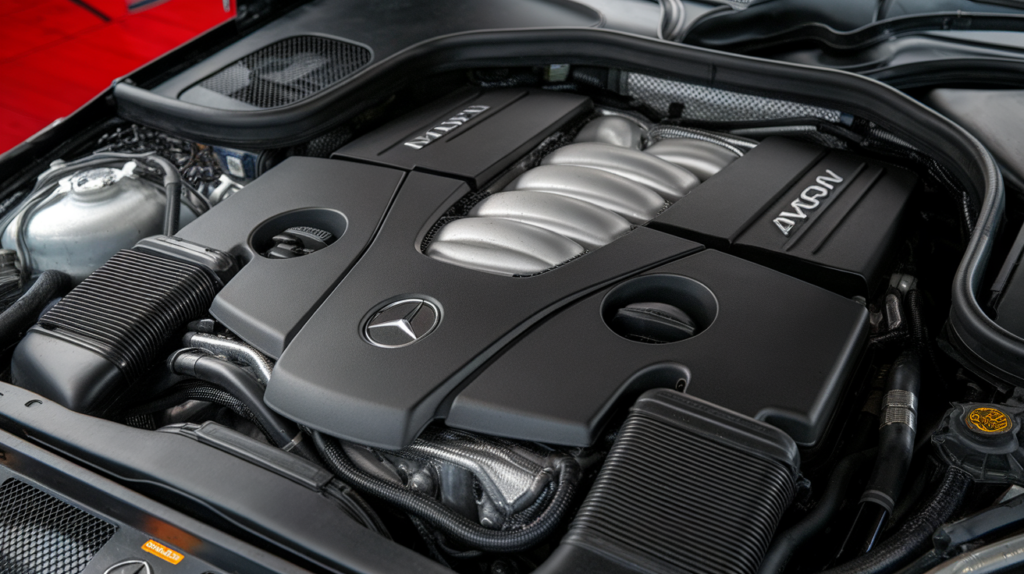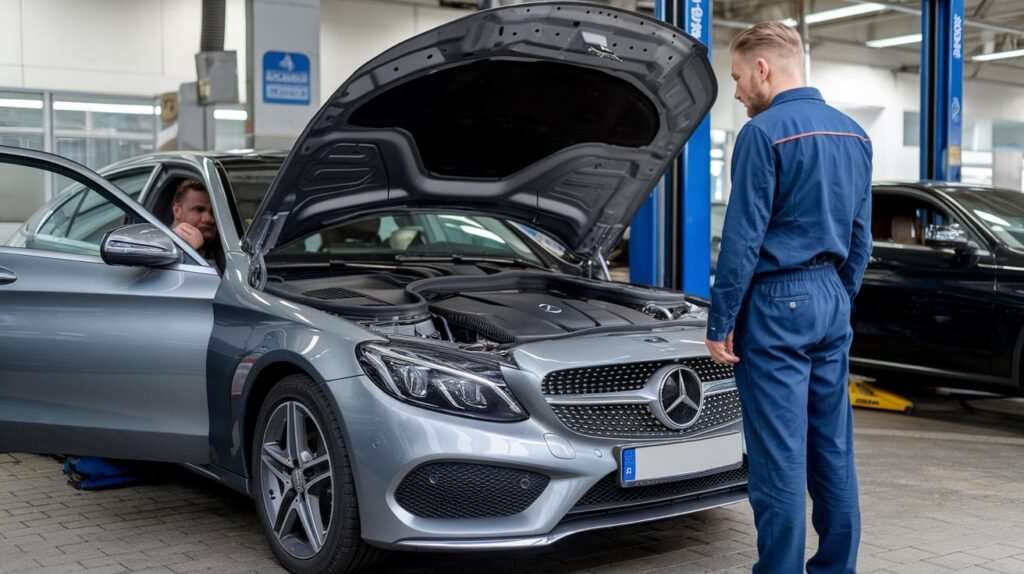How Mercedes Drive Pilot Changes the Future of Self-Driving?
Stuck in traffic, hands on the wheel, mind elsewhere. That’s the daily grind Mercedes Drive Pilot wants to end. This autonomous driving system, available in the Mercedes-Benz EQS and S-Class, operates under SAE Level 3 autonomy. It handles full driving tasks in specific conditions. With the Drive Pilot 95 update, it now works up to 59 miles per hour. It’s not just assisted driving anymore. It’s conditional automation. You can let go, literally. Mercedes Drive Pilot is not a luxury add-on. It’s a shift in how we think about driving. “Autonomy isn’t about tech, it’s about time.” What Sets Mercedes Drive Pilot Apart from Other Systems? Most systems out there still ask you to babysit the wheel. Tesla Autopilot, BMW Personal CoPilot, Audi Traffic Jam Assist, they all fall under Level 2 autonomy. That means you’re still legally responsible, even if the car’s doing most of the work. But Mercedes Drive Pilot? It crosses that line. This is a true Level 3 system. You can legally take your hands off the wheel and your eyes off the road, under specific conditions. That’s not a small leap. That’s a legal and technical shift. The hardware stack is where things get serious. Mercedes Drive Pilot uses a combination of LiDAR, radar, ultrasonic sensors, and a high-resolution camera suite. This sensor fusion allows the system to build a 360-degree model of its environment. It’s not just reacting, it’s predicting. And then there’s redundancy. If one system fails, another takes over. Braking? Redundant. Steering? Redundant. Power supply? You guessed it, redundant. That’s not just engineering. That’s foresight. Other systems rely heavily on camera-only setups. Tesla, for example, removed radar entirely. But Mercedes Drive Pilot leans into multi-layered sensing. It’s not about minimalism. It’s about reliability. And let’s not forget the legal side. This system is approved for use under specific traffic conditions. That’s not marketing. That’s regulatory compliance, something most competitors haven’t cracked yet. Here’s what gives Drive Pilot its edge Sensor architecture | LiDAR, radar, ultrasonic, and camera suite working in tandem Safety protocols | Redundant systems for steering, braking, and power Fallback systems | Real-time monitoring and emergency disengagement Regulatory approval | Legal use under SAE Level 3 in real-world traffic Mercedes Drive Pilot is not just another feature. It’s a system built to outlast assumptions. And it’s already doing that. Technical Architecture Behind Mercedes Drive Pilot Ever wonder what happens when a self-driving car misreads a lane or misses a pedestrian? That’s the nightmare scenario most drivers fear. And it’s exactly why Mercedes Drive Pilot was built with layers, not shortcuts. This system is not just smart. It’s engineered to be cautious, fast, and deeply aware of its surroundings. Let’s break down how it works under the hood. Sensor Fusion | Seeing More Than You Can Most systems rely on cameras. That’s not enough. Mercedes Drive Pilot uses LiDAR, radar, ultrasonic sensors, and a high-definition camera suite. Each sensor handles a different job: depth, distance, object detection, and lane reading. Together, they build a 360° model of the road. Real-Time Processing | Decisions in Milliseconds All that data? It’s processed instantly. The control units inside the car filter and prioritize inputs with sub-second latency. That means the system reacts faster than most humans can blink. It’s not just watching, it’s calculating. HD Maps and GPS | Knowing Exactly Where It Is Forget basic GPS. Mercedes Drive Pilot uses high-definition maps with centimeter-level precision. These maps are constantly cross-checked with GPS triangulation, so the car knows its exact position, even if road markings fade or visibility drops. Drive Pilot 95 Update | Speed Meets Trust With the Drive Pilot 95 update, the system now operates up to 59 miles per hour. That’s not just a technical bump. It’s a confidence boost. More speed, same control. V2I Communication | Listening to the Road The system does not just look, it listens. It pulls traffic data, construction alerts, and road conditions from external infrastructure. That’s how it stays ahead of surprises. Legal and Regulatory Milestones for Drive Pilot Before any self-driving system earns public trust, it has to earn something else first: legal permission. That’s where most projects stall. But Mercedes Drive Pilot didn’t just pass the test. It helped write the rules. This section unpacks how Drive Pilot navigated the legal maze, what bodies approved it, and why that matters far beyond one brand. Why Legal Approval Matters: Autonomous driving laws aren’t just technical; they’re political, cultural, and deeply cautious. Most governments don’t want to be first. They want to be sure. That’s why Mercedes Drive Pilot had to prove more than capability. It had to prove accountability. The Role of KBA in Approval: The German Federal Motor Transport Authority (KBA) didn’t rubber-stamp this system. They tested it in real-world traffic, under strict conditions. Every disengagement protocol, every fallback scenario, and every driver alert was reviewed. This wasn’t a lab test. It was a legal stress test. Meeting UNECE Standards: UNECE regulations define what Level 3 autonomy must look like. That includes when the system can operate, how it hands control back to the driver, and what happens if something fails. Mercedes Drive Pilot met those standards, and in doing so, set a benchmark. Global Ripple Effect: Once KBA gave the green light, other regions took notice. DMV pilot programs and transport authorities began referencing Drive Pilot’s approval process. It’s now a case study in how to launch Level 3 autonomy legally, not just technically. Understanding Level 3 Boundaries: Level 3 means the car drives itself, but only under mapped, controlled conditions. You can look away, but you must be ready to take over. That’s the legal handshake. And Mercedes Drive Pilot honors it with precision. Real-World Use Cases of Mercedes Drive Pilot You know that feeling when you’re crawling through traffic, inch by inch, wondering if you’re wasting your life in the driver’s seat? That’s the exact pain Mercedes Drive Pilot is built to erase. This isn’t a lab demo. It’s







